Teaching Philosophy
My philosophy is based on a belief that teaching and learning are collaborative processes best achieved through student engagement, and by fostering a genuine enthusiasm for the subject matter. As a teacher I believe it is my responsibility to guide students to greater intellectual heights in pursuit of three primary goals;
- Imparting fundamental scientific concepts that lead to self-directed inquisition,
- Promoting the ability to think objectively, and
- Facilitating an appreciation for the natural world.
I currently hold a limited-term lecturer appointment with the Department of Geography and Programs in Environment at the University of Toronto Mississauga where I teach the following undergraduate courses:
- GGR272: Digital Mapping & Principles of Cartography
- GGR276: Spatial Data Analysis and Mapping
- GGR311: Landscape Biogeography
- ENV330: Experimental Design in Environmental Sciences
- GGR335: Remote Sensing and GIS Integration
- GGR337: Environmental Remote Sensing
- GGR464: Advanced Remote Sensing
Below are examples of student comments related to my teaching.
“She [Amy] took the time and effort to ensure students comprehended the material. If only there were duplicates of her.”
"Amy is an awesome instructor. She makes learning exciting and fun."
“The instructor relates to students and makes her teaching style appealing to us.”
"Amy is an excellent instructor and she is really good at including the class and helping you understand concepts, by
using a variety of learning techniques. I wish I had her for every class."
“Dr. Mui is very knowledgeable in the subject matter. She has an excellent ability to engage students and seems to have
a sincere desire to help students learn.”
"Amazing instruction, the teaching was delivered in a way that allowed student interaction and encouraged questions.
This was my favourite course this semester, not because of the material but because of the professor."
“Great instructor because she reviews the important material from the previous week quickly with a short quiz. Because of the review, the material is easier to remember because it’s like we get it taught twice.”
I am especially interested in the use of educational technology in classrooms to enhance student engagement and regularly use web-based tools such as Socrative (www.socrative.com) and Learning Catalytics (Pearson, learningcatalytics.com). As the discipline of geospatial remote sensing and GIS education continues to grow rapidly, I have been involved in, and continue to further a project developing the use of virtual (online) geospatial labs to enhance the undergraduate learning process. This web-based platform allows students to connect remotely to a web-based “lab” which supports multiple specialised geospatial programs, allowing students to continue to practice their software-related skills outside of the traditional computer lab. Results of this research and its ultimate success were published in the Journal of Geography in Higher Education (below).
My main teaching interests lie in topics broadly encompassing environmental remote sensing and GIS, with emphasis on natural areas or species conservation, as well as wildlife ecology, physiology, and management. I am also involved in a variety of classes and workshops run by non-academic institutions (e.g., Urban Biodiversity course run by the City of Toronto, Environmental Planning Division).
As the path to becoming a better teacher never ends, I will continue to investigate novel and effective approaches to teaching, assessment and learning.
